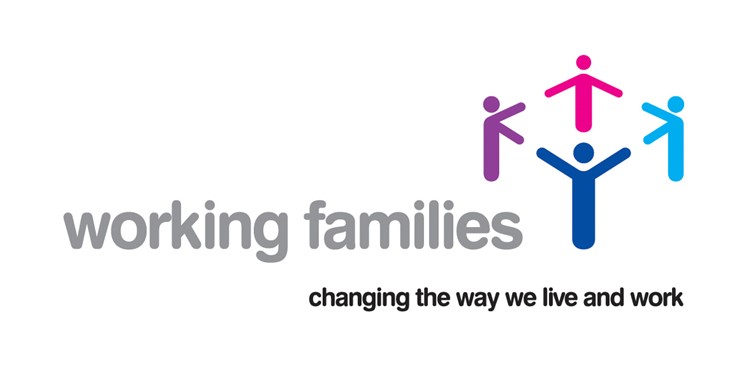
Working Families is the UK’s national charity for working parents and carers with the mission to remove the barriers that people with caring responsibilities face in the workplace. They provide employers with the tools they need to support their people whilst creating a flexible high-performing workforce. They discuss the impacts of the new spring budget childcare provisions and what these changes mean for working families. By looking closely at the budget, the post understands some of the limitations of the suggested proposal and explores ways employers can better support those in their workforce who have children.
Putting childcare on the agenda
This year’s Spring Budget represented an important step forward for families. The Government, in their announcement that they would be extending funded childcare for 1- and 2- year-olds, finally acknowledged that childcare is a part of our infrastructure and that it enables parents and carers to work and contribute to the economy. Putting childcare firmly on the agenda means that both this and future governments are committed to act, and its position as a front-and-centre policy means backsliding is not an option. Moreover, the proposals recognise the struggles families face and that the crumbling childcare system is in desperate need of a cash injection.
Limited resources
And therein lies the issue. At first glance, it seems the proposals can be chalked up as a win, but closer scrutiny of the figures shows that they are woefully underfunded. The existing £1.8 billion shortfall for childcare for 3-and 4- year-olds are already the cause of higher top-up fees and has contributed to the mass closure of nurseries. The predicted funding is unlikely to make a dent, let alone plug the gap. Many fear that, without sufficient funding, the proposals are likely to simply exacerbate the problems of our childcare system, leaving parents in the same untenable position as before – paying higher fees and competing for fewer places as more providers buckle under financial pressure.
The long wait
Not only is there not enough investment proposed in the early years’ sector, but the changes won’t take effect until April 2024 for 2-year-olds, and it won’t be until 2025 that places for children over 9 months will be funded. For those parents in financial difficulty now, the changes are of little comfort. As parents face the daily struggle of finding quality, affordable childcare, many socially responsible employers are considering how they can support their employees through a time of exceptional hardship.
Employer action
The good news is, there are many ways that employers can ease the burden on parents in the here and now.
Financial Support
Our 2022 Working Families Index showed that even before the cost-of-living crisis started to bite, 3 in 5 parents reported finding it financially harder to raise a family. Whilst many costs are beyond employers’ control, there are actions that can be taken to help families weather the storm.
- Support childcare costs
There are a few ways that employers can help families cover the current excessive childcare costs. You could consider subsidising ongoing childcare or helping cover the long school breaks with holiday club provisions. The large deposits needed for nursery can be prohibitively expensive, so loans to cover this lump sum can facilitate working for many.
- Living wage
Paying the Living Wage to staff at every level of your business, including those seasonal and contract staff can help parents and carers manage the rising childcare costs. Also, consider whether companies in your supply chain adhere to the Living Wage as well.
Flexible working
Flexible working can help families manage ‘the juggle’. The 2022 Working Families Index found that almost a quarter of those not using formal childcare were managing by using flexible work to share childcare responsibilities. This won’t be possible for many families, but even a degree of flexibility can minimise the dependence on formal childcare.
- Finding a flex that fits
There are countless ways to be flexible. Hybrid working, reduced or compressed hours, changing start and finish times, flexitime, job share -the list goes on. Considering the elements and tasks of each role and how and where they can be completed can unlock flexibility. By consulting with employees and teams you may discover solutions that suit both individuals and the business.
- Making flex a success
The experience of working flexibly can be greatly improved if managers understand the benefits of flex and how to initiate a dialogue with employees. Not being afraid to experiment with trial periods and adjustments, and having leaders that ‘walk the talk’ can also make the difference in making flex work.
Culture and Support
Creating a supportive culture can help both employees and the business to thrive. Here are some of the low-cost measures employers can implement to help parents and carers feel valued.
• Advice and guidance
Childcare costs and entitlements can feel like a minefield when you’ve had a baby. Help ease the stress by creating an easy-to-understand guide on the help available with childcare costs. Working Families advice pages are a great place to start. For parents with more complicated cases, Working Families has a helpline that employers can signpost to.
- Help staff get a head start on waiting lists
Those new to parenthood may not know what lies ahead in terms of accessing childcare. In light of the current underfunding of the proposals, it is a good idea for parents and carers to think ahead and check with local providers at the first opportunity whether they will offer funded places for 2-year-olds, as the waiting list may be long. Employers can help by highlighting the need to take action early as part of discussions around taking maternity leave or returning to work.
- Language matters
The words we use can have a big impact, and so talking about caring responsibilities in a gender-neutral way helps to normalise men using their entitled parental leave and taking a more active role in sharing childcare.
Register FREE to access 2 more articles
We hope you’ve enjoyed your first article on GE Insights. To access 2 more articles for free, register now to join the Government Events community.
(Use discount code CPWR50)




